
How we see Stanstead College
Stanstead’s history is long and varied—it will celebrate its 150th anniversary in 2022—apparent in the buildings as well as the traditions that continue at the school today. It was founded in 1872 by the Wesleyan Conference as a co-educational school, though both of those things have fluctuated over the years: it became a property of the Methodist Church, became a boys’ school, became a property of the United Church of Canada, welcomed girls again in 1979, and then ended its denominational affiliation. All of that history is very present and celebrated, and it imparts to students a sense of permanency and of belonging to something greater than themselves. The student population is relatively small, at 200, and the community is very strong and centralized, something the school rightly sees as a strength. The academics, as you’d expect, are very strong, but the culture of the school is a primary draw, especially for families looking at the boarding program. Stanstead accepts both boarding and day students, though the school is structured around boarding and maintains a very global perspective across the curricular areas.
Compare with:
How Stanstead College sees itself
"Stanstead College is an independent boarding and day school for girls and boys in Grades 7-12, with a student population of roughly 280. Surrounded by the rolling hills of Quebec's Eastern Townships and nearby Vermont, Stanstead's unique situation opens doors to top universities and colleges in the United States, Canada and around the world. Caring teachers, small classes, rigorous academics and an advisor system allow students to become self-disciplined young women and men prepared for life after high school."
"Stanstead College is the only Canadian school accredited by the New England Association of Schools and Colleges, providing our students with access to top schools throughout North America. Stanstead College is located on the Vermont border in the rural heart of French Quebec, providing students from around the world with a true multicultural experience. Our hockey teams for boys and girls are considered among the top in North America."
"Parents and students are drawn by our family-style atmosphere and welcoming community. Tolerance and respect are integral to all aspects of our school environment. As a result, students form close relationships, including with their teachers, who serve as role models and mentors in the classroom, as coaches and advisors and as residence supervisors. Support is all around. In addition, our hockey program appeals to student-athletes who want to pair elite-level athletics with rigorous academics."
"Students love the uniform! School dress puts all students on an equal level, contributing to the sense of community. Plus, students appreciate not having to pick out their clothes every day!"
"Parents are surprised by the level of independence their children achieve. While students are supervised 24 hours a day, they are responsible for ensuring that they meet commitments and all school expectations. Adults are there to guide them along their way, but students leave Stanstead better able to balance life's demands."



Pat Burns Arena

Two full gymnasiums
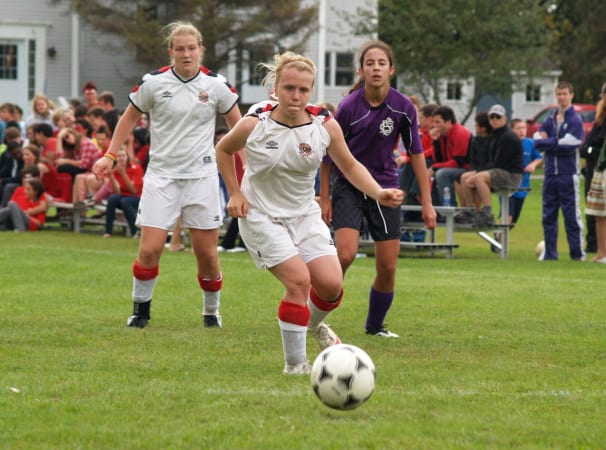
Multiple playing fields




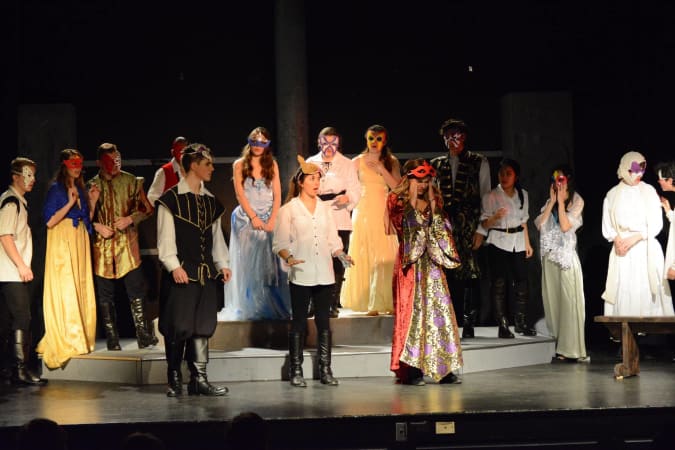
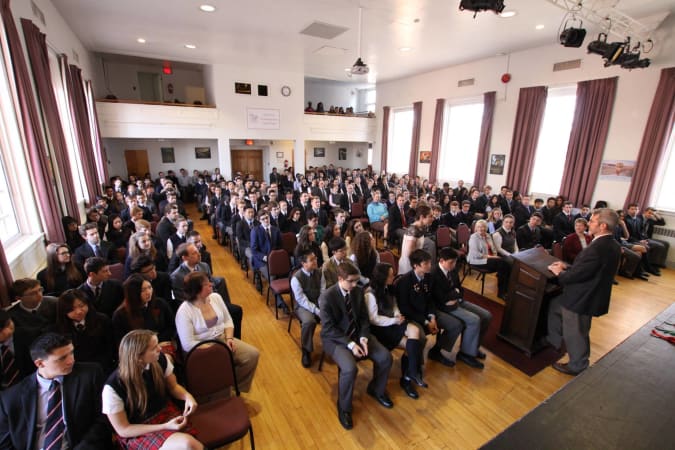



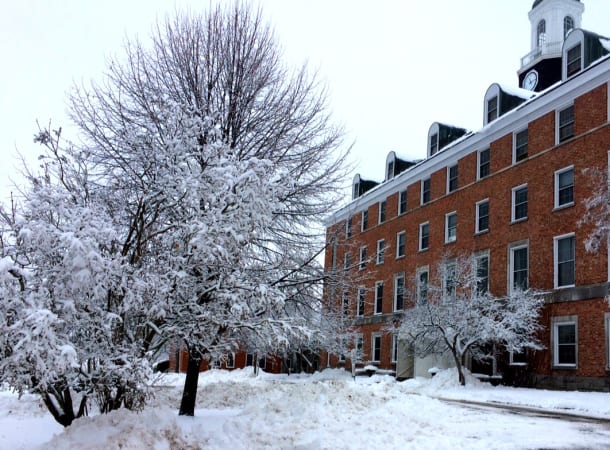
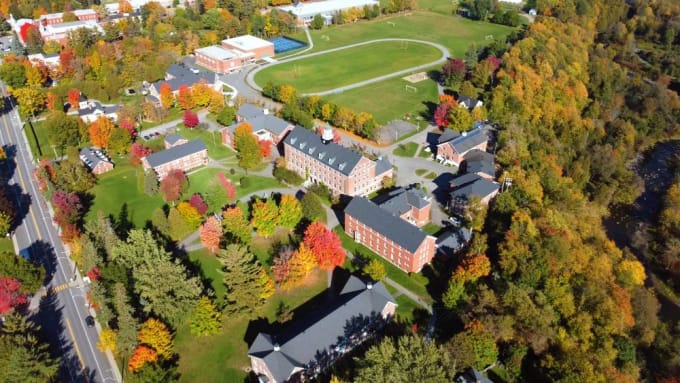










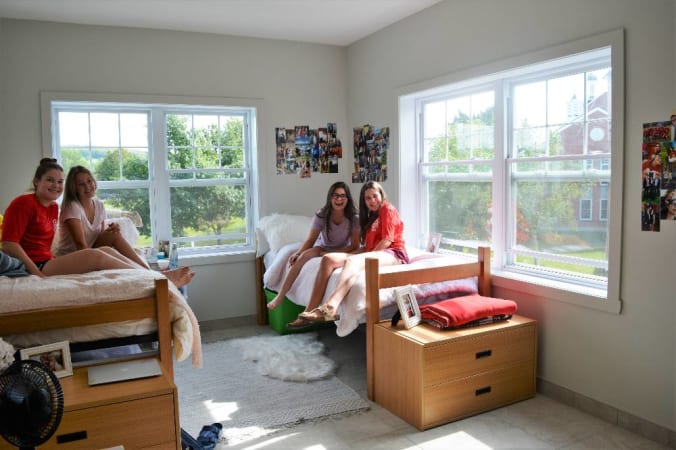
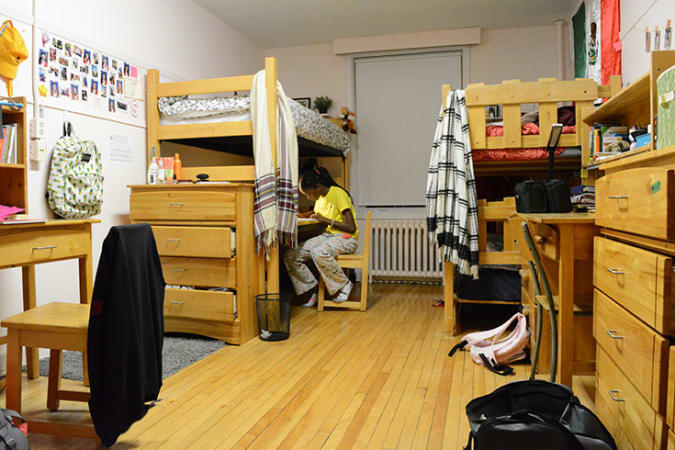
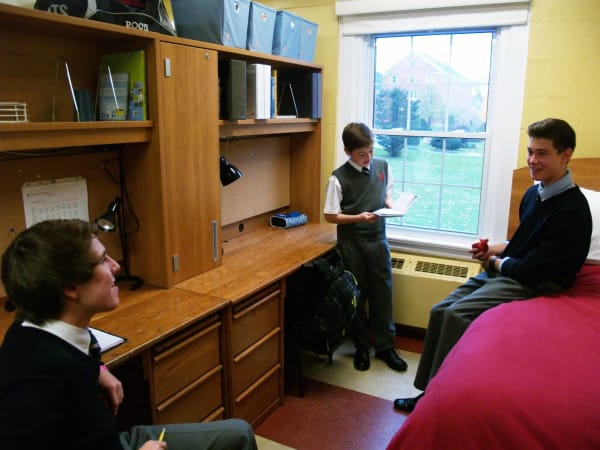










School Library


LeBaron Dining Hall





How people from the school’s community see Stanstead College
Top-down influence on the school’s direction and tone

Joanne Carruthers, Head of School
As Stanstead College’s head of school – the first female head of school in the College’s 150-year history – I am filled first with a great sense of responsibility for the task I am taking on.
But I also feel gratitude. Gratitude for those before me who built and sustained this amazing school community. Gratitude for the teachers and support staff who work tirelessly to create such an exceptional atmosphere. Gratitude for the parents who entrust their children to our care. Gratitude for the opportunity to live and work in this safe, beautiful corner of the world.
Finally, I am grateful for the students. I get to work every day in an environment that is teeming with young energy, hope and optimism. True, sometimes that energy is a lot to manage! But the students who come to Stanstead College are so excited to be here. They are excited to learn in small classes and forge relationships with their teachers and peers. They’re excited to perhaps experience boarding for the first time or to compete in a sport they’ve never tried. They might even be excited about Canadian winter! (And they should be!)
What all our students have in common, though, is they are excited about their future. And it is our mission to guide them towards it, namely to provide students with a structured and enriching educational experience that builds a foundation for success at university and beyond.
I’m grateful (and excited!) to be a part of that mission. It’s wonderful to see first-hand what a difference Stanstead College makes in their lives. And the beauty of it is: our students are grateful in return! It all comes back.
A final expression of gratitude, then, to you for your interest in Stanstead College. Explore our website, visit our school, talk to our Admissions team, and consider becoming a part of our Stanstead College community. You’ll be thankful you did!
THE OUR KIDS REPORT: Stanstead College
Next steps to continue your research:
Continue researching Stanstead College with OurKids.net, or visit school website.